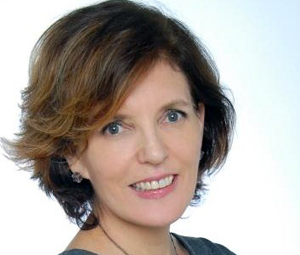January 7, 2013
Jane Horan Sounds Off On Health Care

By Michael D. Shaw
I thought we’d start off 2013 by getting some fresh insights into the world of health care from a successful and savvy business consultant. Jane Horan is the founder of The Horan Group, a strategic consultancy focusing on cross cultural leadership, bias awareness, and the acceleration of women leaders. The Group is based in Singapore, and was founded in 2008.
Of great interest to Jane are the notions of unconscious bias and politics in the workplace. She is the author of I Wish I’d Known That Earlier in My Career, designed to provide the reader with an understanding of corporate politics from a positive perspective. Jane’s insights will be interspersed with my comments. She titles her observations “A $3 Trillion Business, But Who Benefits?”
Who benefits, indeed? The physicians are getting ever-decreasing reimbursements, the hospitals are crying poverty, Medicare seems to be ripped-off on a daily basis, and patient dissatisfaction is growing. Perhaps, the insurance companies–at the top of the heap and free to raise rates and lower reimbursements with abandon–are benefiting.
Horan describes health care as “[O]ne of the greatest social and economic challenges in the United States,” further noting that it is “unlike other businesses, with many unsatisfied clients and few tangible benefits from increased investment.” I would add that it is the only business whereby increased technology raises costs, and arguably reduces efficiency.
The reason for this is simple enough: By way of a uniquely American conceit, every patient deserves the best health care, and under these rubrics, the “best” is always the most high-tech, and generally also the most expensive. While this surely typifies the bias Jane refers to, she adds two more examples of her own.
The first takes the form of “[A]n analysis paralysis of multiple tests to clarify a diagnosis or to preclude legal actions over a wrong interpretation. The second bias is the inability to see the individual patient outside of specific demographics. Insurance is based on numbers, so it is difficult to see the individual in the process. The second bias is difficult to change as it requires a throwback to old fashioned medicine–taking time to reflect, listen, and observe the patient.”
Further to the blind emphasis on number-crunching is the fervent devotion to so-called normal blood levels and other physiological parameters, which have now even spawned such absurd concepts as “borderline pre-diabetes” and “borderline pre-hypertension.” Both of these constructs have done little other than create more people to treat, thus adding to an already crushing cost burden. Worse, they masquerade as preventive care.
As she works her way toward a true paradigm shift in how health care is delivered, Horan correctly identifies the classic bias of conventional allopathic medicine. “Doctors trained to cure disease have a natural bias towards acute illness or solving a medical dilemma.” More than that, reimbursement schemes vastly favor procedural medicine over cognitive–not to mention preventive–medicine. Perhaps the most bizarre example is that few insurance programs reimburse for flu shots, but all would pay for a lengthy hospital stay that might result from a serious infection.
Via her analysis of bias, Jane Horan reaches a precept that I have discussed several times in this column. Any “health care” model based on disease care must ultimately fail. Or, as she puts it…
“A system focused on disease management unduly burdens the individual, society, and government. Health care should keep people healthy, rather than applying an expensive band-aid when they’re unwell. Something’s gone awry with a focus on disease and prolonging life rather than prevention and quality of life. Unfortunately, re-framing these entrenched beliefs on disease management could take decades to break. Preventive health care relieves stress for an overburdened and costly system.”
As to Jane’s “decades,” I am a bit more optimistic. The disease care model will run out of money long before then.

